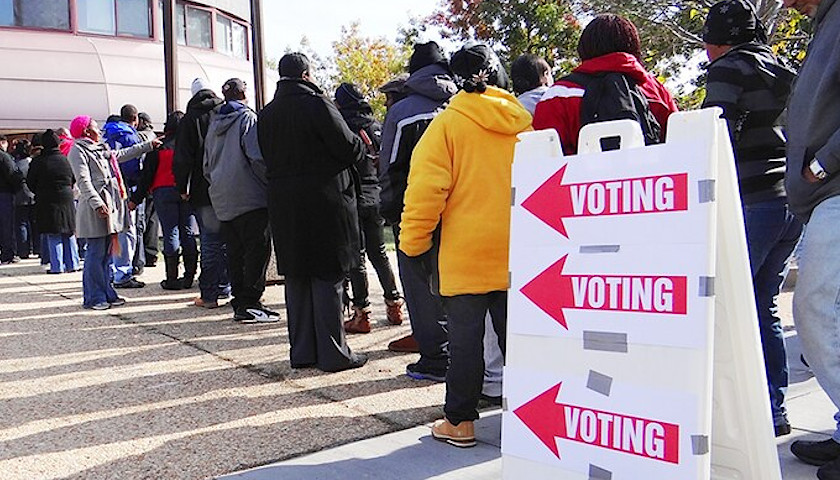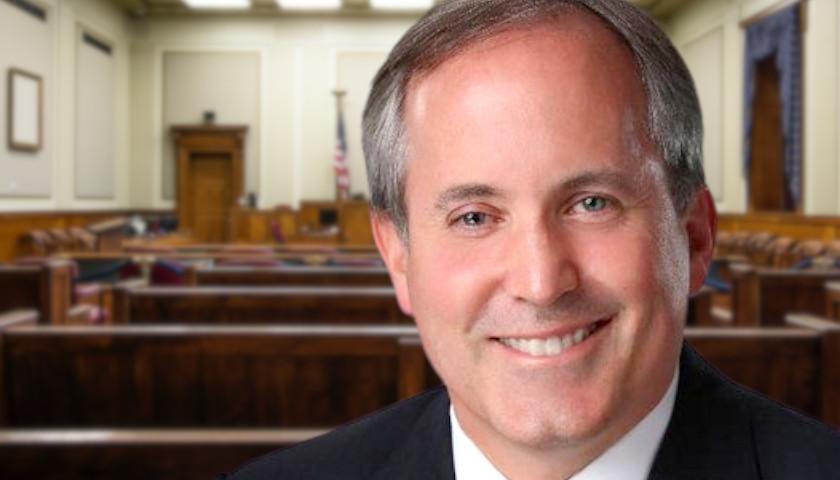This week the Ohio Ballot Board finalized the wording of a referendum on a proposed state constitutional amendment to prohibit noncitizens from participating in local and state elections.
A majority of Ohio voters will need to approve the measure during the November 8 election for the amendment to become law. The ballot question informs electors that the amendment would “require that only a citizen of the United States, who is at least 18 years of age and who has been a legal resident and registered voter for at least 30 days, can vote at any state or local election held in this state” and that the law would “prohibit local governments from allowing a person to vote in local elections if they are not legally qualified to vote in state elections.”
Interest in such a policy arose after residents of Yellow Springs approved a 2019 referendum asking whether the village should allow noncitizen voting.
After the measure passed in the liberal college town near Dayton, Secretary of State Frank LaRose (R) ordered the Greene County Board of Elections to reject all noncitizen voter registrations. He insisted that the Ohio Constitution limits the franchise to U.S. citizens insofar as Article V, Section 1 describes eligible voters as U.S. citizens.
Yellow Springs officials countered that the state constitution grants municipalities “authority to exercise all powers of local self-government and to adopt and enforce within their limits such local police, sanitary and other similar regulations, as are not in conflict with general laws.” LaRose responded that the village’s new election policy did indeed contravene state law.
To prevent other localities from making similar moves, State Representatives Jay Edwards (R-Nelsonville) and Bill Seitz (R-Green Township) sponsored the resolution enabling the creation of a constitutional amendment. When the House of Representatives passed the legislation in May, the lawmakers called it an important election-integrity measure. Seitz said he is “confident” that Ohioans will back it.
Enfranchising noncitizens has become an increasingly popular cause among leftist politicians. In 2016, voters in San Francisco approved Proposition N to eliminate citizenship as a requirement to vote to elect school directors. In recent years, 11 cities and towns in Maryland enacted laws permitting noncitizen participation in local elections.
And, just this year, New York City Mayor Eric Adams (D) signed similar legislation that would make 800,000 noncitizens residing in his city eligible to vote to elect local officials.
Noncitizen enfranchisement is prohibited regarding federal elections under the Illegal Immigration Reform and Immigrant Responsibility Act, which a Republican Congress passed and Democratic President Bill Clinton signed in 1996. Many state constitutions however don’t directly address the question of whether municipalities may adopt a different policy, instead merely stipulating that “every citizen” or “all citizens” can vote.
Dan Stein, president of the D.C.-based Federation for American Immigration Reform (FAIR), told The Ohio Star he believes ensuring all voters are citizens comports with basic civics in a democratic republic.
“Noncitizens are actually citizens of other countries, and owe their primary political allegiance to another nation where they can return home at any point,” he said.
“Giving the citizens of other countries the right to vote in state and local elections is contrary to the fundamental principles of self-governance and will ultimately tear apart the connections of a free and independent people.”
Since 2018, voters in four states — Alabama, Colorado, Florida and North Dakota — assented to amending their states’ constitutions to restrict voting to U.S. citizens only. The Arizona Constitution also stipulates, “No person shall be entitled to vote … unless such person be a citizen of the United States.”
The voting proposal is one of two amendments Buckeye Staters will consider this fall. The other pertains to whether state courts, when setting a bail amount, must weigh public safety concerns, the seriousness of a defendant’s offense, that defendant’s criminal background and the accused’s likelihood of fleeing. The policy would place procedures for determining bail under the purview of the Ohio General Assembly; they are presently under the jurisdiction of the state supreme court.
Currently, the court adheres to a rule it recently adopted stating that public safety ought to receive consideration when it comes to non-monetary bail (e.g., tracking devices, curfews and no-contact orders) but not monetary bail. In the latter case, the high court instructs that criminal courts release defendants “on the least restrictive conditions that, in the discretion of the court, will reasonably assure the defendant’s appearance in court, the protection or safety of any person or the community, and that the defendant will not obstruct the criminal justice process.”
Progressive opponents to the phrasing of either ballot question have until next week to request that the Ohio Supreme Court make changes.
– – –
Bradley Vasoli is managing editor of The Ohio Star. Follow Brad on Twitter at @BVasoli. Email tips to [email protected].





